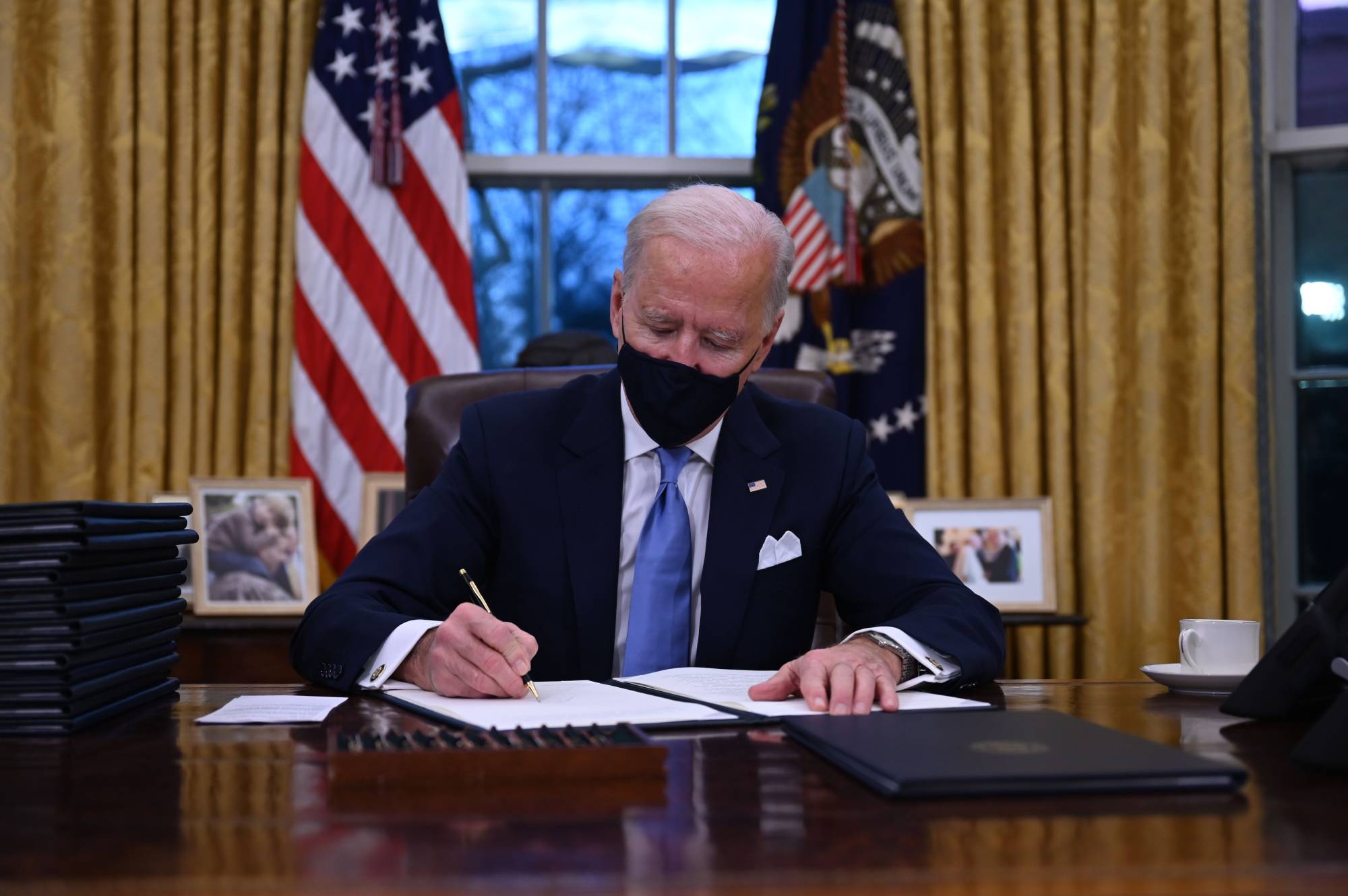Ahlulbayt News Agency: About three months ago, when the new US administration outlined its approach to the Iran nuclear program and deal, all evidences heralded a tough policy of the Democratic government to the 2015 world powers' nuclear agreement with Tehran. The Democratic administration which trumpeted its return to the accord initially, now sets obstructive conditions to return to a deal Trump scraped in 2018 and reinstated sanctions on the Islamic Republic.
Upon Joe Biden inauguration, Axios news reported that the president planned to task a seasoned and strict negotiation team which would not consider easy return to the deal, or as it is officially called Joint Comprehensive Plan of Action (JCPOA). Shortly later, Biden in a CBS News interview said Washington will not lift sanctions for the sake of restarting talks with Iran.
Simultaneous with the Biden government's firm stance and the announcement of new terms and conditions for its return to JCPOA, Iran’s parliament approved a binding-for-government law requiring an increase in the level and percentage of uranium enrichment.
The law set late February as a deadline for the US sanctions lifting, or Iran would enrich uranium with higher level, to 20 percent. As Tehran increased enrichment levels, changes to the Western stances began to show face. France, which had even suggested that sides outside the accord signatories join in, announced that the signatories would soon talk the US return to the agreement. The European Union issued a statement announcing that representatives of China, France, Germany, Russia, Britain, and Iran will hold a video conference to discuss the possible return of the the US and ensuring full and effective implementation of the agreement by all members.
Reuters news agency also quoted Iranian sources as saying that Iran was in talks with Britain, France, and Germany, and a diplomat who talked to the news agency said that the talks focused on an Iranian proposal.
These positions and conditions, from the beginning of April this year, indicated a 180-degree change in the Western and American position on the nuclear issue. A couple of essential issues should be considered regarding the Western position shift on Washington’s return to the deal:
Iran has been subject to the most severe sanctions by the West and the US over the past 40 years of Islamic Revolution life. The pressures culminated during rule of Donald Trump who adopted the so-called "maximum pressure policy" against Iran. Despite the heavy pressures that sanctions have placed on Iran so far, this embargo has never been able to change the pro-independence and revolutionary positions of the Islamic Republic, and Tehran has always had a firm and clear policy against the hostile behavior of the West, led by the US.
In other words, even Trump’s heaviest sanctions could not bring Iran to its knees. Bearing witness to this are the words of the American officials, including Biden, who said sanctioning approach failed to change Tehran policy.
On the other hand, Iran's new international agreements with other countries like China and Russia made the West conclude that Iran's non-Western alliances and active presence in the Central Asian economic and trade market in practice means that sanctions would longer affect its economy. If Washington leaders do not enter into negotiations with Tehran under the pretext of lifting sanctions, they will lose the opportunity and time in the future, they further understood. That is why the West is trying to enter into negotiations with Iran and take advantage of the current limited opportunity before sanctions show further lack of effectiveness.
Currently, the world public opinion have come up with the notion that it was the West and the US that failed to comply with the terms of the deal within framework of a multilateral agreement, giving Iran more legitimacy and mandate to continue its nuclear program. With the world public critical of the American treacherous approach to the Iran nuclear agreement, now Biden government is rushing to restore the previous deal with Tehran and curb higher enrichment levels.
At the same time, the course of developments in recent months and last year's terrorist assassination of Iranian Quds Force Commandeer General Qassem Soleimani at direct Trump order in Baghdad airport showed the extent of the American and Western hostile and obstructionist approach to Tehran.
A collection of these developments solidified Iranian home unity in the face of the Western conspiracies and built an exemplary cohesion of opinion among the Iranians on the need to push back against the hostile West’s excesses.
Despite its past pressures and mobilizing all of resources to confront Iran, the US now talks about readiness to talk JCPOA and return to it. After all, the Americans know that Iran is united presently and they cannot just turn a blind eye to this unity.
/129

